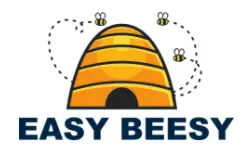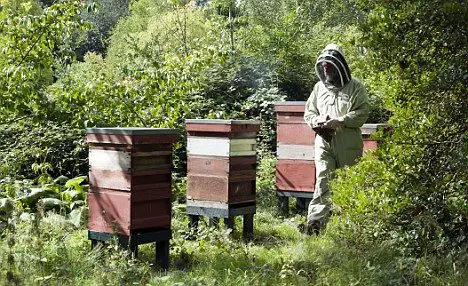Affiliate Disclaimer - As an Amazon Associate I earn from qualifying purchases.
It supports the website. So, Thank you
Beekeeping is not only a rewarding hobby but it’s also one that’s beneficial to the planet since bees are under threat. By taking care of a hive yourself, you’re playing an important role in looking after your local ecosystem.
However, you’ll probably want to know, ‘how much work is beekeeping?’ The last thing you want is to take on a new hobby only to realize that it’s a lot more involved than you imagined. That’s why doing some research first is super important.
Most of the time, a single hive will consume around 40 hours of your time each year. Although you may need to give it a little more attention in the first and second years.
This isn’t a huge amount of time but it’s certainly not the only thing you’ll want to think about when deciding whether beekeeping is the right hobby for you.
Table of Contents
Is Beekeeping Difficult?
Beekeeping has actually become quite a popular pastime in recent years. Many people find it to be enjoyable and relaxing and, if you’re willing to turn it into a business then it could be a fruitful venture. Of course, this will involve a lot more hard work, time, and commitment. But I’ll go into that a bit more later on.
However, for the most part, beginners will use beekeeping as a way to pass their spare time and normally do it on their days off or after work. It doesn’t really matter if you only want to keep one hive as something to keep you occupied, especially if you don’t have an awful lot of time to dedicate to the hobby.
One of the first things you’ve got to ask yourself is whether you’re cut out for keeping. A lot of people think that this will be an easy hobby; I mean, they’re bees..how much care do they really need?
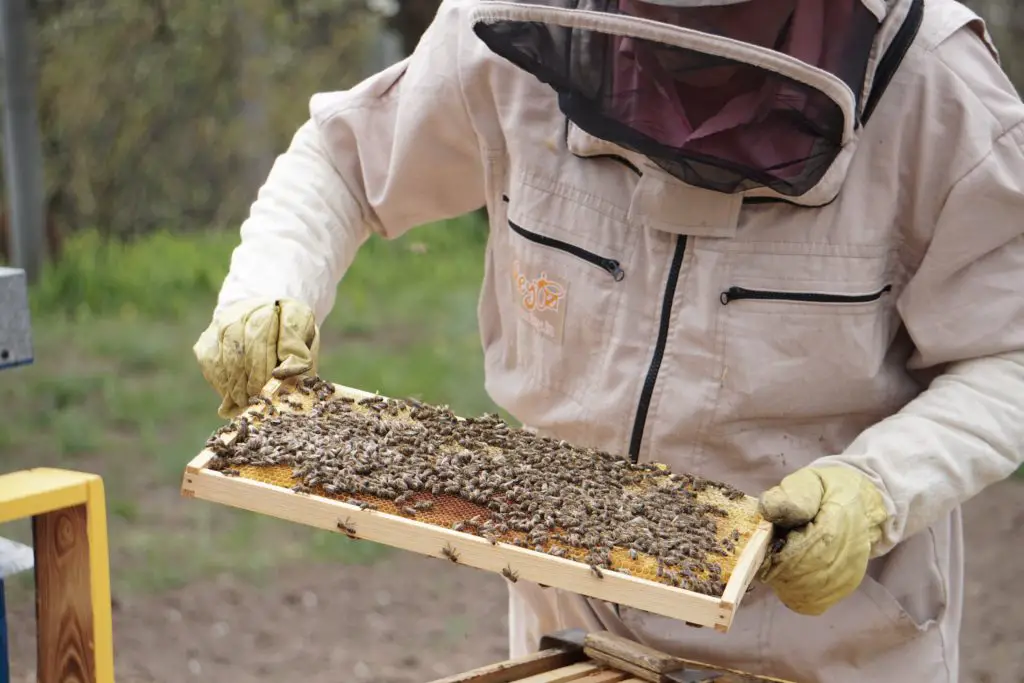
Truth be told, beekeeping isn’t always an easy hobby. For starters, you’ve got to keep in mind the potential of being stung. While honey bees are not typically aggressive creatures, they can be when they feel threatened. New beekeepers need to learn how to approach a hive and how to keep their colony calm when performing checks and maintenance on the hive. But even so, you’d be hard pushed to find even the most experienced apiarist that hadn’t received a sting or two over the years.
There are physical, emotional, mental, and financial challenges involved in beekeeping. Aside from the physical threat of stings, you also have to consider your own physical strength. When it comes to harvesting honey, there’s a good degree of manual work involved and for a mid-sized honey super, you could have to lift up to 50lbs.
On top of this, you have to be prepared to spend time outdoors. Now, I realize that beekeeping doesn’t require a huge amount of time over the years but the time you do spend with the hive may be in larger chunks. This could mean spending an hour or two outside in the sun while wearing your protective kit. This can be quite uncomfortable.
Now, mentally speaking, beekeeping can be quite a drain if you don’t properly prepare yourself. This is certainly not a hobby that you can just pick up and be good at within the first few months. Heck, some new beekeepers end up losing their entire colony in the first year and this can be really devastating. What I would suggest is getting in touch with someone who has the experience and allowing them to help you through the first year which will reduce the risk of a disaster.
When I said that beekeeping can take a financial toll, I really meant it. For some people, getting started could involve costs of up to $1000. If you’re keen to make this a business or long-term hobby then you need to see it as an investment. The problem is that, even with all the will in the world, you may end up realizing that beekeeping just isn’t right for you. But is this a risk you’re willing to take?
The main thing to keep in mind when deciding whether to start a hive is that beekeeping comes with a lot of different challenges. If you’re a determined person who’s willing to stand up to these challenges then it might be right for you. But if you find that you usually struggle with tricky situations, then beekeeping might be more difficult than you had imagined.
Beekeeping As A Business
I want to touch on the notion that beekeeping can become a viable business. Well, yes it can. But this isn’t something I’d recommend as a beginner. The most successful business might have anywhere between 300 and 500 hives to meet the honey demands of its customers.
If you have zero previous experience in beekeeping then this is going to be almost impossible to maintain. Therefore, you’ll need to start small and work your way up. Even with a single hive, you’ll produce a small amount of honey that you could potentially sell. Although it certainly isn’t going to make a profit. But it will allow you to gain experience so you can eventually add more and more hives.
Of course, having hundreds of hives also means spending more of your time maintaining and taking care of them. This is certainly not something you could do in your free time and you would have to dedicate yourself full-time. Unless you’ve got a lot of savings behind you to keep you financially stable while the business is becoming established, it’s going to be extremely demanding.
Once you establish a beekeeping business, the number of hours you’ll need to spend on the hives each year may even be too much for you to cope with alone. At this point, a lot of people find they need to hire help and this is something that will eat into your profit so it’s worth considering.
Will I Spend A Lot Of Time Taking Care Of My Bees?
For hobbyists, you can expect to spend around 40 hours per hive each year as a beekeeper. That’s less than an hour a week so most people would agree that it’s something they could easily fit into their schedule. However, you have to consider that, in your first year or two of beekeeping, you may need to spend a little more time; potentially up to 60 hours a year.
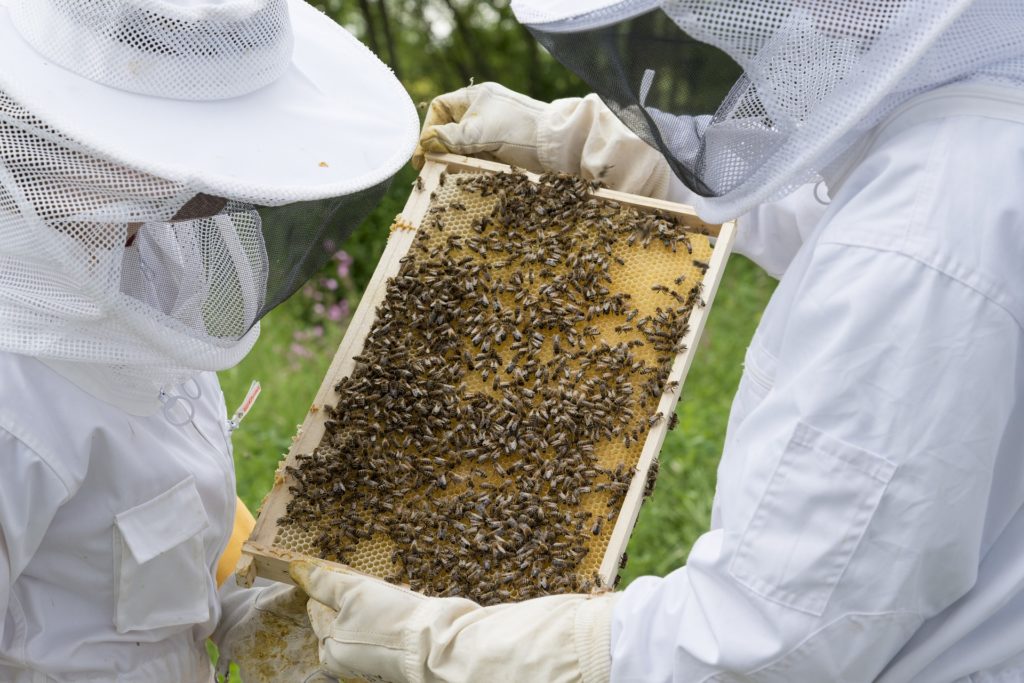
These hours will involve setting up and preparing the hive, performing regular checks, as well as harvesting your honey when it’s time.
Before you even buy anything to get started, I’d massively recommend doing plenty of research. This can include reading posts like this one, purchasing beekeeping books, speaking to experts and other beekeepers, and watching YouTube videos. The more you educate yourself and get clued up on beekeeping, the more chance you’ll have of success. But always keep in mind that this hobby comes with a very steep learning curve.
Jobs You’ll Need To Do As A Beekeeper
Taking care of bees isn’t overly involved. As I’ve mentioned, for a single hive, you’ll only need around 40 hours each year. However, it’s really important that new beekeepers are aware of what they’ll need to do in that time.
When you first set up, you’ll naturally need to build or buy a beehive and prepare it for the colony. But as a brief rundown, here are the things you’ll need to do during each season.
- In spring you’ll need to spend a few hours returning the hive to ‘normal’ after winter. Removing mouse guards and getting the hive ready for any summer expansion.
- In the early summer, beekeepers need to regularly inspect their hives at least once a fortnight. You’ll need to plan for around 20 minutes per inspection to look at the food store, how healthy the queen is, and whether there are any signs of problems. If you do notice anything, you’ll need to take appropriate action; how long this takes will depend on the severity of the issue at hand.
- During fall you will need to spend a few hours harvesting your honey. In addition to this, you’ll want to prepare the hive for winter; weatherproofing and adding protection so that other animals cannot get inside.
- Winter beekeeping doesn’t involve any work at all. You should leave the hive closed and allow the bees to keep warm. The only time you should open a winter hive is if the bees have no food and you need to supply some. If you don’t, the colony will die anyway so it’s worth the risk of opening for a few seconds.
As well as these seasonal jobs, you will need to stay on top of your hive maintenance. It’s always better to tend to problems as they arise. If you’re nervous about taking care of your hive for fear of being stung then there’s no harm in bringing in a more experienced apiarist to show you the ropes.
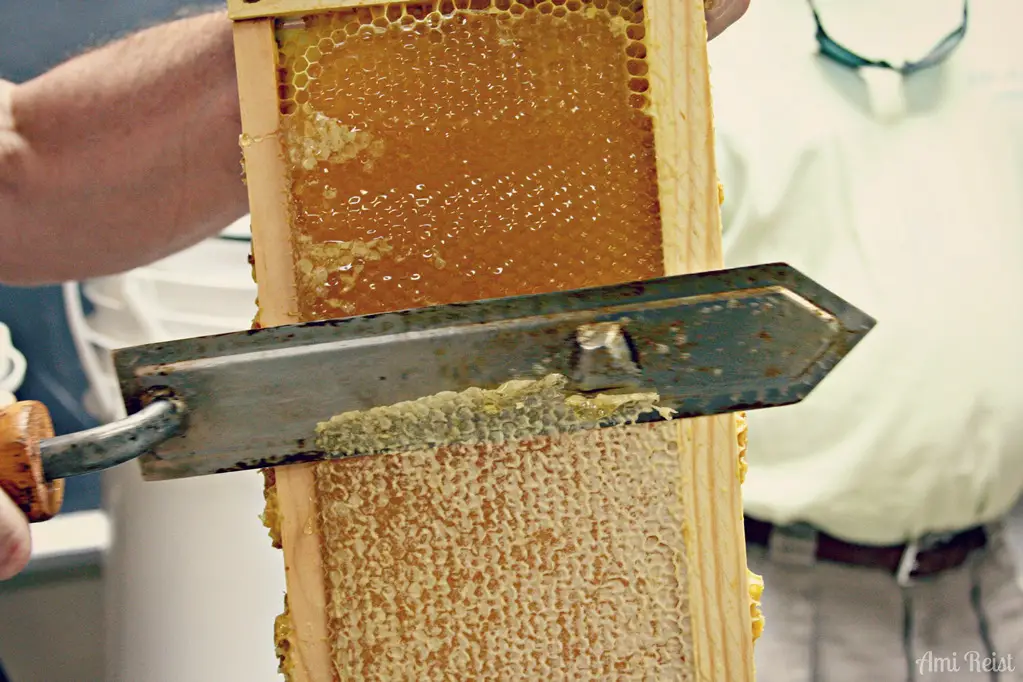
Reasons That Beekeeping Might Be For You
Beekeeping is not a hobby that you should take on lightly. Not only may it not be right for you but, if it isn’t, the bees are going to suffer.
One of the reasons that you should consider becoming a beekeeper is because of your love, fascination, and passion for these amazing little creatures. Shockingly, as many as 70% of beginner beekeepers give up before they make it through the first year.
If you believe that you are someone that can take on the challenges of beekeeping and manage them, then I’d say go for it! The people who have the most success are those that love what they do and are willing to learn from their mistakes.
Doing this will be incredibly rewarding and you’ll find that your bees teach you a lot! As each year goes by, you’ll learn more and more about bees and have the pleasure of watching your colony thrive.
Reasons Beekeeping Isn’t For You
Unless you’re really passionate about bees, you’ll probably find that you don’t have much success with your hive. A lot of people go into beekeeping with the notion that they’ll have an endless supply of delicious honey but this isn’t the case. So, if you’re in it for the honey, you may as well forget it now.
You’ll get a lot more honey by popping down to the local grocery store or farm shop and buying a few jars. What’s more, it’s cheaper and you won’t need to put in as much work.
A single hive might produce up to 60lbs of honey in a season. However, that’s not all for you. The reason that bees make honey in the first place is as a food source for them. So, when you harvest honey, you’ll only be able to take around 25lbs of that. Plus, in the first year, it’s unlikely you’d get anywhere near that good a yield.
Similarly, please don’t take up beekeeping because you think it will make you a quick buck. As I’ve talked about, it is possible to turn beekeeping into a business but it’s not something you can do overnight.
I’d also discourage you from getting into beekeeping if you think it’s going to be an easy hobby. As I’ve discussed throughout this article, there are a lot of challenges associated with beekeeping and there’s a lot to learn when you’re getting started. Even the most experienced beekeepers will find that they have times of struggle and it can be very frustrating.
Conclusion
Beekeeping can be a very enjoyable and rewarding hobby but it’s important to go into it with your eyes open. When asking how much work is beekeeping, you have to consider that, while you don’t necessarily need to spend long hours with the hive, there’s a lot to learn if you want to be successful.
Carefully consider your options and do as much research as possible before you get started. This isn’t going to decrease the amount of work you have to do or lessen the number of challenges. But it will make you more prepared to handle them.
